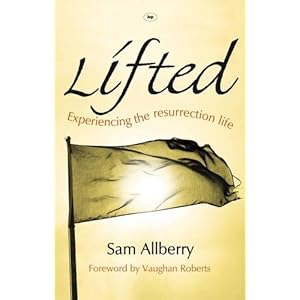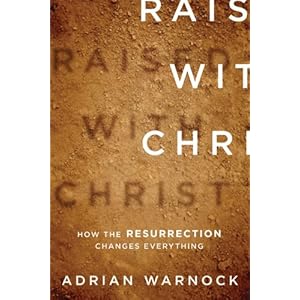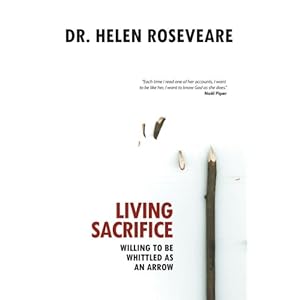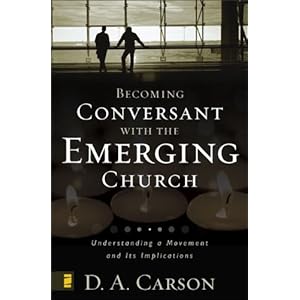Family trees are big business these days, with lots of people researching their great-grandparents, and even further back. There are books, websites, and even TV programmes to help you go back in time to meet your parents. Who do you think you are? is the BBC programme, where celebrities are helped with the research, and travel to the places their ancestors lived, and hear the stories associated with them. Yet sometimes, there’s a shock. Perhaps a great-great uncle who was a pirate, or a smuggler, or who spent some time in jail.
At the start of the New Testament, we’re presented with the family tree of Jesus. That big long list of names in Matthew 1:1-17. Tonight we’re beginning a new series as we trace the second and third generations of the covenant family tree. Several years ago, (before my time) we looked at the life of Abraham - how God called Abram, and promised him offspring (a great nation), land, and his blessing.
But what happens when Abraham is no longer on the scene? How does Isaac, and then Jacob continue as God’s people? You’ll notice in verse 19 the phrase ‘These are the generations of Isaac...’ This is a common phrase in Genesis, a repeated phrase, which shows that a new section is beginning, the next phase of the story is here. (We see it as well in verse 12, but that’s a short section on Ishmael, before we return to God’s covenant people). Just as with the TV programme, we’re going to find some shocking things about our ancestors in the faith, but that reminds us that these guys aren’t the hero, indeed, it drives us closer to God.
I want to look at our passage tonight under two headings. 1. God’s promise of offspring, and 2. God’s purpose in election.
1. God’s promise of offspring. As we’ve said, God had promised Abraham that he would have offspring, that he would be a great nation (12:2), his offspring would be like the stars in number (15:5) or the sand on the seashore (22:17). Isaac was born, after twenty five years of waiting, the child of promise. But now, in the next generation, Isaac himself is without children. He has married Rebekah, but she is barren. Has God abandoned his promise so soon, in the next generation?
Verse 21: ‘And Isaac prayed to the LORD for his wife, because she was barren. And the LORD granted his prayer, and Rebekah his wife conceived.’ Isaac had the clear promise that his father would become a great nation, and so prayed that God would fulfil his promise.
However, when God did fulfil his promise, it was in a quite unexpected way. Not one son, but two - verse 22 puts it so well (indeed, almost foreshadowing all we’ll see over the next few weeks) ‘the children struggled together within her.’ Two bouncing babies, unidentical twins, as one writer has commented. Esau, the red, hairy baby, and Jacob, holding on to his heel. Completely different in temperament, in hobbies, in life. (27-28)
Rebekah, while the children are still in the womb, though, is struggling as the kids struggle within her. She asks why this is happening, and so asks God why - let’s look at verse 23 as we come to our second point:
2. God’s purpose in election. ‘Two nations are in your womb, and two peoples from within you shall be divided; the one shall be stronger than the other, the older shall serve the younger.’
Remember God’s promise to Abraham to make him a great nation? Now there are two nations, two peoples coming from his grandsons - Esau and Jacob. The question is, which is the covenant people? Which is the line of promise?
From our perspective, so many centuries later, we know that Jacob is the line of promise, who later has a name change to be called Israel, and becomes the father of the children of Israel, from whom Jesus the Messiah comes. This is what God purposed in his word to Rebekah: ‘The older shall serve the younger’ - Esau was born seconds before Jacob, so Esau is the older, who will serve Jacob.
But why is this so? Why was it that God chose Jacob, rather than Esau? Have you ever heard of the poet Robert Frost? One of his famous poems is entitled ‘The Road Not Taken.’ The opening lines go like this:
Two roads diverged in a yellow wood,
And sorry I could not travel both
And be one traveller, long I stood
And looked down one as far as I could
To where it bent in the undergrowth.
He stands at a fork in the woods, having to take one path or the other. But which one? Off he sets, not knowing where he is going. Is it like that with God? He tosses a coin, and plumps for Jacob? Well, no.
God is God, some others say, so he knew in advance how things were going to work out and then put his money on the winner? Was it just foreknowledge of how things would happen that meant that God opted for Jacob? Again, we can’t say that. Are we saying that God is at the whim of humans, that God is dependent on us - that God picked Jacob because Jacob had already picked himself?
So maybe it’s not that God just knew what would pan out in the end, but rather that God chose Jacob because he was the good guy, compared to evil Esau. After all, at the end of the chapter, we find that Esau despised his birthright - this was the right to have a double share of his father’s possessions, the special privilege of the firstborn. Yet he despises it, gives it away for the price of a bowl of stew.
Yet there’s a problem with this as well - it’s not just Esau that was evil - Jacob himself is a trickster, using blackmail to obtain the birthright - only giving Esau the food he so desperately needed after he had sworn the birthright away, and later we’ll see his deception as he cons his father to receive his blessing. No, Jacob is not good, or righteous or better than Esau - Jacob doesn’t deserve God’s special choice any more than Esau.
Both brothers are sinners, neither deserve God’s grace. But isn’t that the point?! If we deserved it, it wouldn’t be grace! Rather, we see flawed sinners, rebels, tricksters, who don’t deserve anything being showered by God’s grace in election:
Here’s what Paul says about this: ‘And not only so, but also when Rebekah had conceived children by one man, our forefather Isaac, though they were not yet born and had done nothing either good or bad - in order that God’s purpose of election might continue, not because of works but because of him who calls - she was told “The older will serve the younger.” (Romans 9:10-12)
The truth is that Jacob doesn’t deserve to be chosen by God to receive his grace, and to be included in the family of faith, the forefather of Jesus. Yet he receives that grace in his day, and the promise of Messiah comes one generation closer. It’s what we saw during the Lent Course - God fulfils his promises through the one family, the one line, to prepare the way for Jesus. Imagine that you’re driving up the Newtownards Road, and your destination is Dundonald. There are lots of roads that lead off the main road, interesting roads, maybe the Holywood Road, or the Sandown Road, or whatever. But you’re on course for your destination, so you keep going. In a sense that’s what we see here - Esau is a diversion away from the promised line. God will make him a nation too - Edom, the Edomites, but he isn’t in the promised people of God.
Jacob didn’t deserve to be chosen by God. Neither do we. If you are a Christian tonight, it isn’t because of your works, or your talents, or your goodness. It is simply because God in his wonderful purposes in election chose you to be included in his family. This removes all our sense of pride or achievement. Amazing grace - there is no other word for it! Rejoice, and give thanks to the Lord for his mercy and grace, that guilty sinners like you and me have found grace in the sight of God.
Yet Jacob also reminds us that we need to be changed as we come into the family of faith. God had promised, yes, but that doesn’t justify Jacob’s trickery - God has chosen, but that doesn’t mean God approves of the method he used to obtain the birthright. Was Jacob acting in faith, or out of selfishness?
So far we’ve thought about God’s purpose, but as we close, I just want to mention our human responsibility / accountability. God’s purpose shines through here, as he chose Jacob before birth. Yet Esau is responsible for his own choices, for the way he so lightly gave up his birthright. Look at the last five words: ‘Thus Esau despised his birthright.’ Hebrews 12 picks up this theme in a warning to us - ‘For you know that afterward, when he desired to inherit the blessing, he was rejected, for he had no chance to repent, though he sought it with tears.’
Esau is one who was a part of the visible people of God, yet despised what he had, gave it away, and was rejected. How terrible it would be for any of us, who come along to church, who appear to be good Christians, yet to be despising what we have, and are actually unholy, as Hebrews describes Esau.
God’s promise of offspring, and God’s purpose of election - reasons to give thanks to God tonight, but also to watch ourselves closely, to make sure we’re not actually rejecting the means of grace, rejecting the God who saves and calls.

.jpg)







